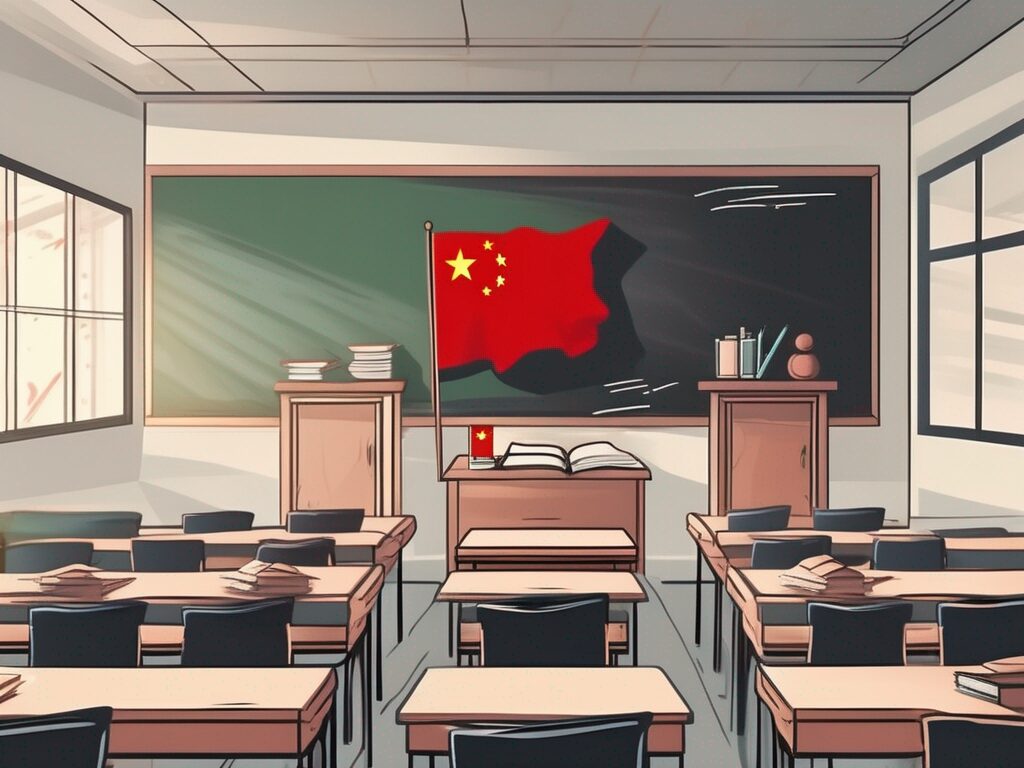The landscape of education in China is in a constant state of evolution, with government policies playing a significant role in shaping the direction of this sector. For teachers with a Master’s in Education, understanding these policies is crucial to navigating the educational landscape effectively. In this blog post, we’ll delve into five key issues related to government policies in China’s education sector.
1. The Drive Towards Quality Education
The Chinese government has been making concerted efforts to shift the focus from quantity to quality in education. This has resulted in a series of policies aimed at improving the quality of teaching and learning in schools across the country.
For instance, the government has been promoting the use of technology in classrooms, encouraging teachers to incorporate digital tools into their teaching methods. This is a significant shift from traditional teaching methods and requires teachers to be well-versed in the latest educational technologies.
Additionally, there has been a push towards more student-centred learning approaches. This means that teachers are expected to facilitate learning rather than simply impart knowledge, a shift that requires a different set of skills and a more flexible teaching style.
2. The Emphasis on Moral Education
Another key aspect of China’s education policy is the emphasis on moral education. The government believes that moral education is just as important as academic education, if not more so.
This has resulted in the implementation of a moral education curriculum in schools, which teachers are expected to deliver. This curriculum covers a wide range of topics, from traditional Chinese values to modern ethical dilemmas, and teachers are expected to facilitate discussions and debates on these topics among their students.
For teachers with a Master’s in Education, this means that they need to be well-versed in moral and ethical education, and be able to engage their students in meaningful discussions on these topics.
3. The Push for Inclusive Education
Inclusive education is another key focus of China’s education policy. The government is committed to ensuring that all children, regardless of their abilities or circumstances, have access to quality education.
This has resulted in policies aimed at promoting inclusive education, such as the provision of additional resources for schools with special needs students, and the requirement for teachers to have training in special education.
For teachers with a Master’s in Education, this means that they need to be prepared to teach in inclusive classrooms, and have the skills and knowledge to support all students, regardless of their abilities or circumstances.
4. The Focus on Lifelong Learning
The Chinese government recognises the importance of lifelong learning in today’s rapidly changing world. As such, it has implemented policies to promote lifelong learning among its citizens.
This includes the provision of adult education programmes, and the promotion of online learning platforms. Teachers are expected to support these initiatives by promoting a culture of lifelong learning among their students, and by continuing to update their own skills and knowledge throughout their careers.
For teachers with a Master’s in Education, this means that they need to be committed to their own professional development, and be able to instil a love of learning in their students.
5. The Challenge of Rural Education
Despite the progress made in China’s education sector, rural education remains a significant challenge. The government has implemented policies to address this issue, such as the provision of additional resources for rural schools, and the recruitment of teachers for rural areas.
However, these policies have been met with mixed success, and rural education remains a key issue in China’s education sector. For teachers with a Master’s in Education, this means that they may be called upon to teach in rural areas, and will need to be prepared to face the unique challenges that come with this.
In conclusion, the landscape of education in China is complex and ever-changing, shaped by a myriad of government policies. For teachers with a Master’s in Education, understanding these policies is key to navigating this landscape effectively. By staying informed and adaptable, they can ensure that they are well-prepared to meet the challenges and opportunities that come their way.
Elevate Your Teaching Career with iQTS
As you navigate the complexities of China’s education policies and consider the challenges of rural education, professional development is key. The IQTS at UWE offers the International Qualified Teacher Status (iQTS) Programme, designed to enhance your teaching credentials and prepare you for the global educational landscape. With the iQTS, you can overcome qualification barriers, accelerate your career progression, connect with a wider professional community, gain a deeper understanding of international curricula, and balance your professional development with your current commitments. Make Your Next Step towards a more fulfilling teaching career today.

